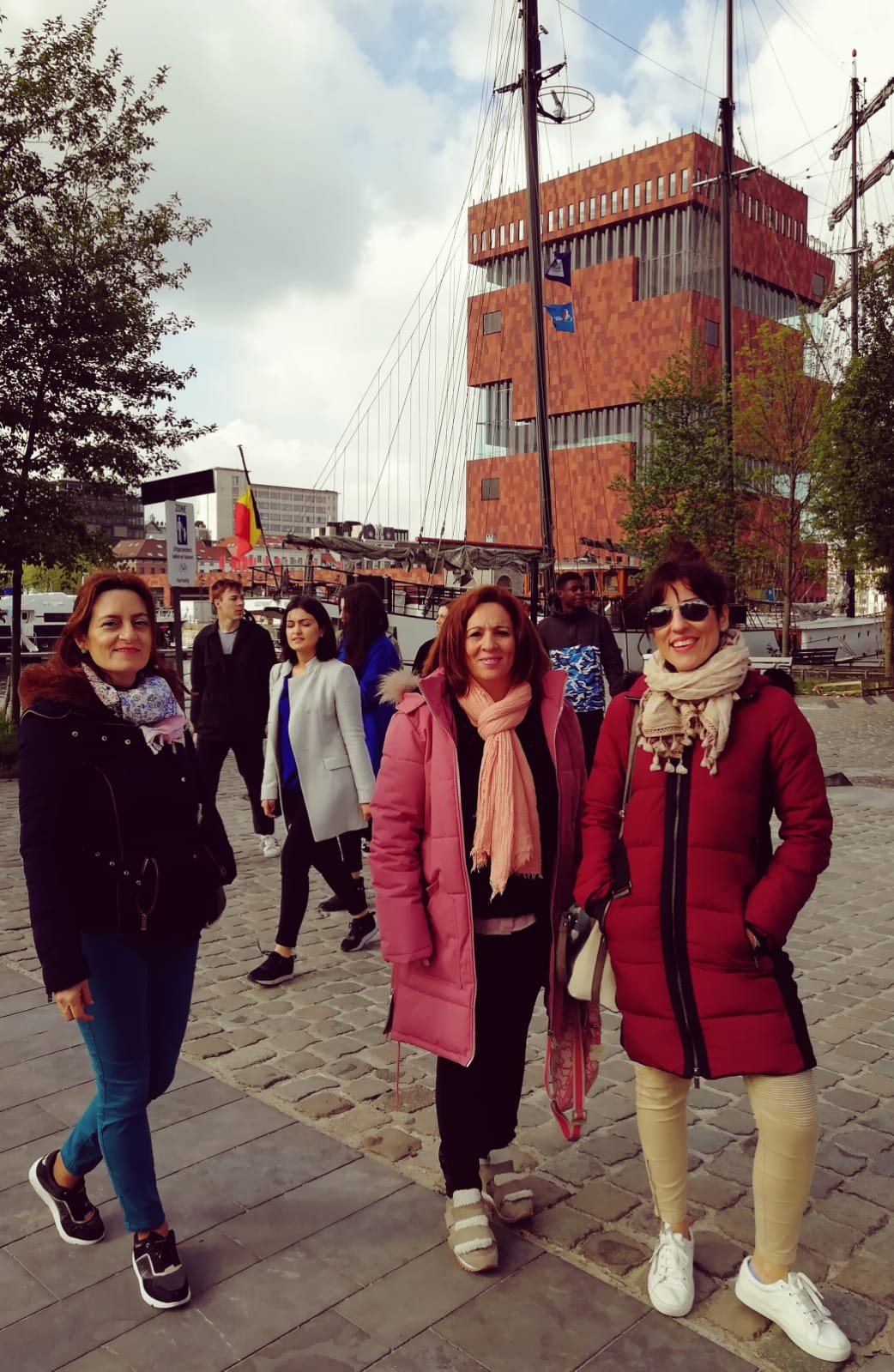To begin with, these days (from 14th April to 29th April) have been a great experience. I have been in Geel, a town in the North-East of Belgium, with two partners from Castilla-La Mancha, Soledad and Almudena.

We have visited ‘Kogeka’, a group of five Secondary schools and a Primary one ,although one of the Secondary school hasn’t participated in this Project.
We have known about their Educational System: Secondary studies begin at the age of twelve and they finish at eighteen (six compulsory courses). In the third course, students can choose among three options: Academic, Engineers or Vocational Training. The students who choose the last option don’t get the ‘diploma’, as their subjects are more practical.
There is no necessary for the pupils who wants to go to University do an entrance exam, just for those who want to become a dentist or a doctor. In this cases, they study three courses of Bachelor’s degree.
We have visited their facilities. The most impressive Centre is the one for Vocational Training as they have a lot of specific places to learn about animal care, cook and building.
In relation to their projects, we attended to several ones as follows:
- ‘Super Schouette’. Groups from Primary school played different games speaking French during one journal. The objective is to motivate pupils for learning this language. It seemed to me a great idea that the responsible people for the games were the pupils from Secondary schools.
- Workshop. Some students are in charge of a shop in one of the Secondary schools where they sell socks, clothes, imitation jewellery… They have to be organized according to the different tasks they are supposed to do.
- ‘Creating a window display’. Students from the sixth degree decorate a window in the hall of a school. In this ocassion, the topic was ‘Alice in Wonderland’. In my opinión, it is a good way of learning in small groups with different tasks, as well as becoming more creative.
- ‘Breaks loose’. This Project consists on giving class outside, so each teather decides what kind of activities wants to do whith one group during this day.
Apart from this, Soledad and I have given four Spanish lessons to students in the 6th course. We showed them a powerpoint about festivals in Spain, we practised different ways of personal presentation, we studied Spanish language pronountiation… The behave of the pupils was so good!
Furthermore, we had meetings with teachers and head masters to learn more about their resources and methods of teaching, such as ‘Flipping Class’, ‘attention to Diversity’, links to real life, etc…
In addition to this, we went to two trips with pupils from the fifth and the sixth course of Secondary. One day we went to Aachen (Germany) and the other day we went to Antwerp, where we had a meeting with a responsible of a Communication Agency and a guided tour by students (we really enjoyed it!).
Some of the positive aspects I have observed is the way of making students get more authonomus and responsible of their own work, the importance of joining studies with real life,as well as the freedom of teachers to evaluate them by deciding the porcentage for each skill, without the necessity of doing too many exams. I have also observed that students where much more interested in learning than in marks. In fact, they can stay one more hour at the end of the afternoon to be helped in those subjects they consider they need. However, those students who don’t pass their course can repeat it the times or courses which are necessary until the age of 25.
On the other hand, their timetable is very different from ours, due to the differences of culture, as they stop one hour to have lunch.
To sum up, I think it is a great experience that let you learn more about our work, get new ideas, know pupils of different cultures and interests… It is really worthy! You can have a look to the photographs in my folder.